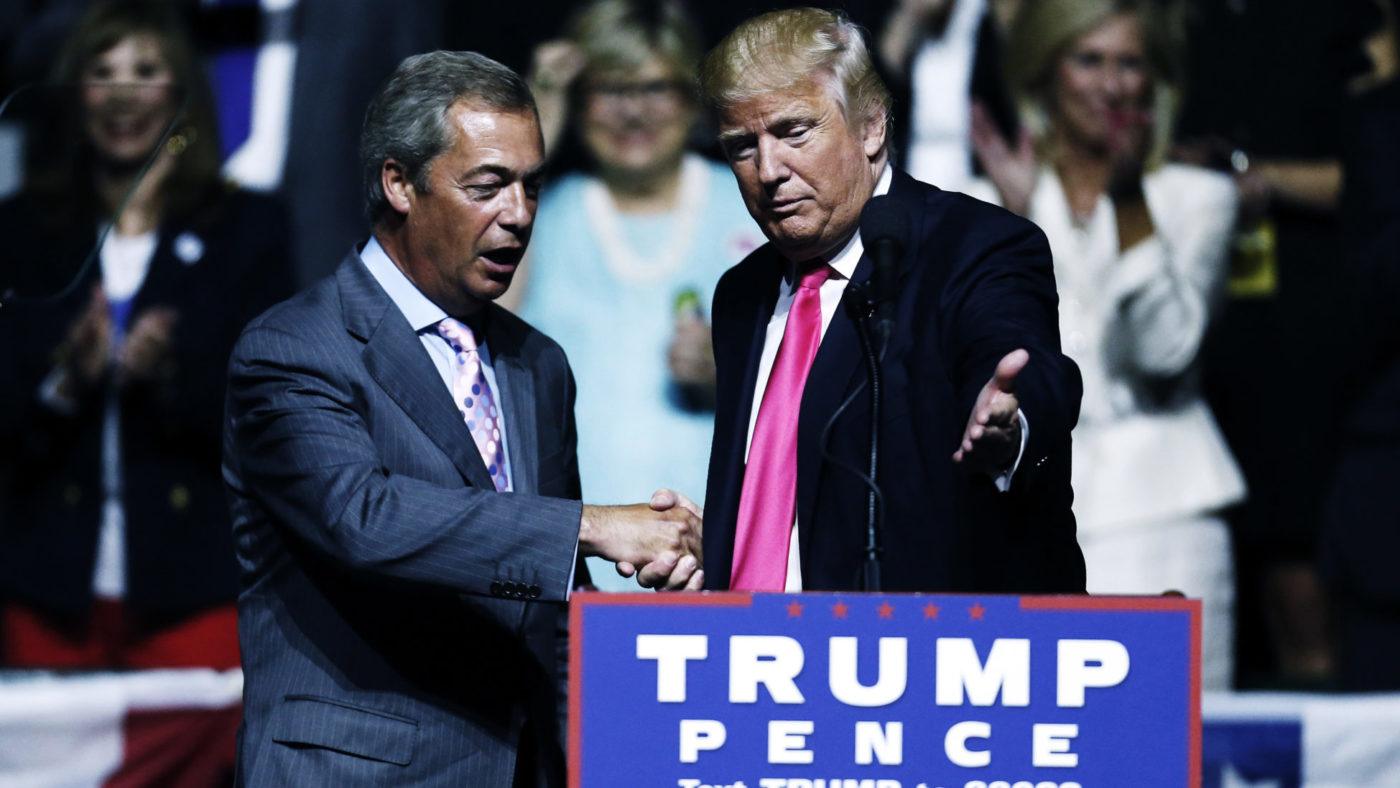Writing in the Daily Telegraph two weeks ago, Donald Trump Jr. made the bold claim that “Brexit and my father’s election are one and the same”. This a common narrative: the media often portrays Trump’s election and the Brexit referendum as identical phenomena, while Trump himself enjoys comparing the two. As a Brexiteer living in the United States, it’s a sentiment I hear all too often — but this notion is far from accurate.
From the policies each campaign pushed to the views of the politicians involved, Brexit and the 2016 Presidential election are different in several key ways.
From the beginning, Donald Trump ran a campaign based on isolationist policies. Before the election Trump proudly declared that “Americanism, not globalism will be our credo”. This view is juxtaposed to those held by many Brexiteers.
Many people voting for Britain’s independence from the EU did so believing that after Brexit, the UK would leave the customs union which imposes tariffs on trade with nations outside the bloc and open its markets to trade with the rest of the world. When making their case, prominent Brexiteers espoused a vision of “a global free-trading Britain”. Arguably the most influential Brexiteer, Boris Johnson, described Brexit as an opportunity for Britain to be “more outward looking, more engaged, more energetic, more enthusiastic on the world stage than ever before”. This global outlook could not be more different to Trump’s “America First” worldview.
Similarly, just two days before the Brexit vote, one of the most prominent Vote Leave advocates, Daniel Hannan, wrote an article in the Financial Times titled “Free Britain to trade with the world.” In that piece, Hannan discussed the opportunity that Brexit would give Britain to strike trade-deals with the nations outside the European Union—namely the United States, China, and India.
While Brexiteers wanted a trade deal with China, Trump and his cohorts wanted to wage a trade war against them.
The two movements also differ in their opinion of one another. Trump and his team love Brexit and enjoy comparing the two campaigns. Steven Mnuchin, Trump’s Secretary of the Treasury, has said that he is “very supportive of Brexit”. Trump himself has called Brexit “a great thing” and the president even touted himself “Mr Brexit”.
However, this kind of warmth is far from reciprocal.
Most prominent Brexiteers actively distance themselves from Trump. Johnson has said he would draw a “very, very strong contrast” between Trump and Brexit. Trump once called the former Foreign Secretary “a friend of mine,” who would “make a great prime minister.” But Johnson, although slightly warming to the president more recently, once said that Trump displays “a quite stupefying ignorance that makes him, frankly, unfit to hold the office of president of the United States”.
Johnson isn’t alone. Hannan has called Trump a “narcissistic, thin-skinned bully, a serial liar,” and pro-Brexit politician Douglas Carswell once described Trump as “shrill and obnoxious”. These clearly aren’t comments from politicians who consider themselves the president’s allies.
It’s true that ex-UKIP leader Nigel Farage has been an enthusiastic Trump cheerleader, but he’s the only prominent Brexiteer to do so.
Still, there are some similarities between the two campaigns. Most notably, both votes represent the electorate’s rebellion against out-of-touch elites. But whereas the Trump vote was a rebellion against a Washington domestic political class, the Brexit vote was, if anything, a bolstering of the Westminster system against the power of the European Union.
So, beyond superficial similarities, the Brexit referendum and Trump’s election are really very different phenomena. And, quite frankly, Brexiteers just don’t love Trumpsters back. As with most unrequited affection, it’s because each side wants different things.
Many Brexiteers want Britain to escape the isolationist EU in order to trade with other nations, whereas Trumpsters want to close the door to the wider world.
Sorry Trump Jr., but if you ask me, these movements are far from “one and the same.”
CapX depends on the generosity of its readers. If you value what we do, please consider making a donation.


